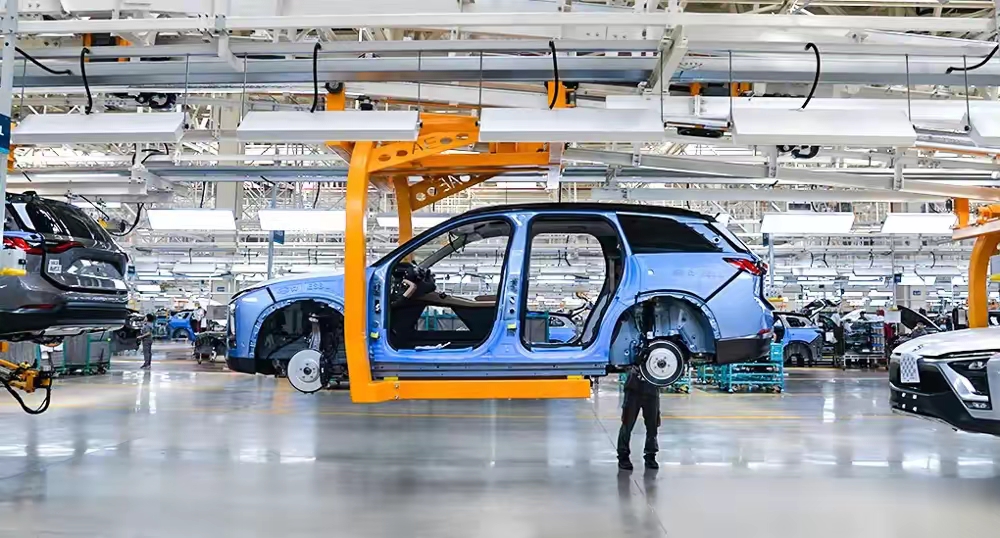
In the global automotive industry, German cars have always held an important position with their outstanding quality, advanced technology, and profound brand heritage. However, recent news released by foreign media shows that the performance of the three giants of German cars - BMW, Mercedes Benz, and Volkswagen - has all declined. This phenomenon has attracted widespread attention and in-depth thinking in the industry.
1、 Introduction to the Three Major German Automobile Companies
BMW AG, officially known as Bavarian Mechanical Works AG, was founded in Munich, Germany in 1916. It is renowned worldwide for producing high-performance luxury cars and motorcycles.
Mercedes Benz, also known as the Mercedes Benz Group, has a history dating back to the late 19th century. Headquartered in Stuttgart, Germany, it is the world's largest luxury car manufacturer. Mercedes Benz is renowned for its elegant exterior design, comfortable driving experience, and top-notch safety performance. Its S-Class, E-Class, C-Class and other models are benchmark products in the luxury car market.
Volkswagen Group, founded in 1938, is headquartered in Wolfsburg, Germany. It is the largest automotive company in Europe and one of the most powerful multinational companies in the world automotive industry.
2、 Reasons for the decline in performance
In recent years, the global economy has faced many uncertainties, such as trade frictions and geopolitical conflicts. These factors have led to a slowdown in global economic growth, a decrease in consumer purchasing power, and a reduction in demand for commodities such as automobiles. The markets of the three German automotive giants are spread all over the world, and it is naturally difficult to avoid being affected by the economic situation. For example, in some emerging market countries, due to economic instability, consumers' willingness to purchase high-end cars has decreased, which has had a certain impact on the sales of BMW, Mercedes Benz, and Volkswagen.
There are also some problems in the internal management of the three German automotive giants. For example, Volkswagen Group once faced the impact of the "emission gate" incident, which not only brought huge fines to the company, but also seriously damaged the company's brand image. In addition, issues such as product structure adjustment, insufficient R&D investment, and poor supply chain management have also affected the performance of the enterprise. Mercedes Benz and BMW also face problems such as long product development cycles and high costs in the process of electrification transformation, resulting in slow launch of their new energy vehicle models and insufficient market competitiveness.
3、 The impact of declining performance
Deterioration of financial condition: The decline in performance directly leads to a decrease in the company's operating income and profits, affecting the company's financial condition. This may lead to financial constraints for enterprises, affecting their research and development investment, production expansion, and market promotion activities. For example, BMW Group had to adjust its full year performance outlook after a decline in performance, lowering its expectations for delivery volume and profit margins in the automotive sector.
Brand image damage: German cars have always presented themselves with a high-quality and high-performance image, but a decline in performance may lead consumers to question their brand, affecting their reputation and loyalty. Especially in the Chinese market, consumers attach great importance to brand reputation and image. If the three major German automakers fail to improve their performance in a timely manner, they may lose the trust of some Chinese consumers.
R&D investment is limited: The automotive industry is a technology intensive industry that requires continuous R&D investment to enhance product competitiveness. A decline in performance may lead to a decrease in a company's R&D investment, affecting its technological innovation capabilities and the speed of product upgrades and replacements. This will put the three German automotive giants in a more disadvantageous position in future market competition.
The upstream and downstream of the industrial chain are impacted: The three major German automotive companies are important pillars of the German automotive industry, and their declining performance will have a chain reaction on suppliers, distributors, and other enterprises in the upstream and downstream of the industrial chain. The decrease in orders from suppliers and the decline in profits may lead to survival difficulties for some small suppliers; The inventory backlog and increased sales pressure of dealers may affect their business situation and confidence in the brand.
In short, the decline in performance of the three German automotive giants is the result of a combination of multiple factors. This phenomenon not only has a significant impact on the companies themselves, but also brings challenges and opportunities to the development of the global automotive industry. The three major German automotive companies need to seriously reflect on their development strategies, increase research and development investment in new energy vehicles, intelligent driving, and other fields, accelerate product upgrades and replacements, in order to adapt to market changes and consumer demands.

As 2026 approaches, the space sector is once again entering the public spotlight, becoming part of everyday discussion.
As 2026 approaches, the space sector is once again entering…
Microsoft CEO Satya Nadella recently launched a personal bl…
In the early hours of January 3, 2026, flames in the Caribb…
As 2026 begins, the euro area economy remains mired in a "w…
According to Xinhua News Agency, the Ministry of Agricultur…
Recently, the United States launched a military raid on Ven…